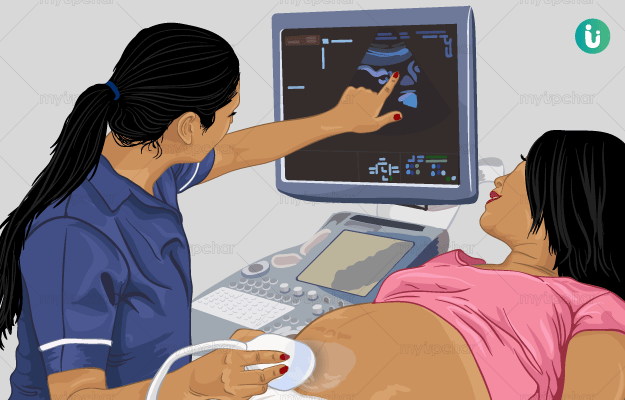What is a fetal echo?
Foetal echo, also referred to as a foetal echocardiogram, is a test that uses ultrasound waves to obtain a detailed image of the heart of an unborn baby. It is generally done in the second trimester of pregnancy, i.e., in 18 to 24 months of pregnancy, primarily for identifying heart conditions in the developing foetus.































